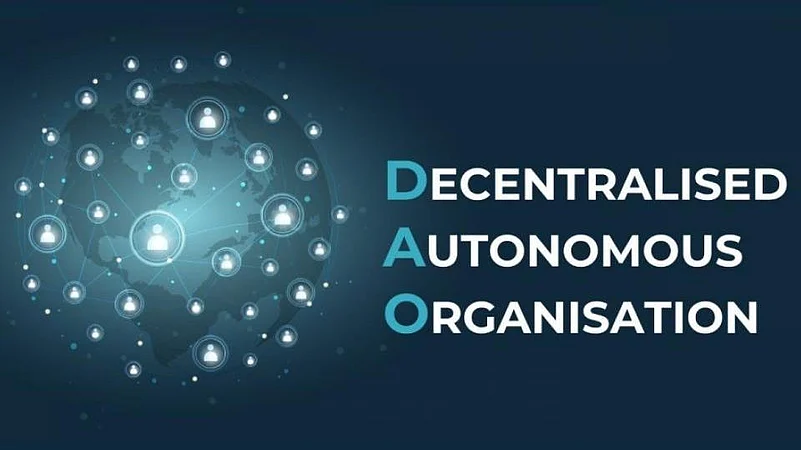As digital transformation is changing the world increasingly, traditional organizational structures are impugned by new, innovative, and decentralized alternatives. One spectacularly new term is the Decentralized Autonomous Organization , DAO. This new model of governance fundamentally transforms how communities, businesses, and, indeed, societies work, guiding them toward transparent, collective decision-making processes without central authorities involved.
Organizational Structures Through Time
Hierarchical organization for centuries has been maintained, whether it is from a corporation, not-for-profit agency, or government. Centralized leadership is at the core of decision-making, where higher levels lead to lower levels. Bureaucratic red tape, inefficiencies, and distortions of power have mostly dominated it at times, as their components feel they lack a voice.
Then decentralized organization barely conforms to these truths; all members participate in decision making, enabling them to have a more democratic inclusive system. For instance, DAOs symbolize a departure from these models into collective governance- whereby everything revolves around transparency and community-driven initiatives.
What is DAO?
A DAO is a decentralized organization that governs itself, cutting out the central authority. Smart contracts—self-executing contracts programmed into blockchain networks—govern the DAO's operation and promise transparency and the automatization of rules. DAO members regulate a meeting in which governance proposals are submitted and voted upon in a transparent, immutable manner through a consensus mechanism.
The key difference is that while traditional organizations hire executives and a board of directors to make critical decisions for the organization, a DAO allows members to vote on key initiatives, policies, and spending. This structure for participative governance ensures higher levels of community engagement and lowers the risk of corruption or arbitrary decision-making that serves a few.
Transparency and Trust in Decision Making
One of the tenets of a DAO is transparency. Since decisions and financial transactions are publicly recorded, members have a robust avenue to verify all actions taken within the organization. This eliminates avenues for opacity in governance, thus precluding fund misappropriation or hidden agendas that very often characterize traditional institutions.
Trust is another important variable in DAOs. Trust in conventional settings is often placed in leadership figures or institutions; sometimes that gives rise to conflicts of interest or power struggles. Trust in a DAO is established by the governing code, where smart contracts implement decisions free from any undue influence, thereby guaranteeing impartiality and compliance with rules set in advance.
The Benefits of Decentralized Organizations
One of the most attractive features of DAOs, indeed, is their capacity to materialize collective ownership. Unlike conventional organizations, where control is largely vested within a small group, DAOs allow for an equitable distribution of control among the members. Thus, any person contributing his labor to the organization is involved in directing the organization's future, rendering a more just and participative system.
Flexibility serves as another advantage. In traditional organizations, hierarchical structures usually drag decision-making processes slowly. DAOs are truly flexible and perform swift decisions through blockchain-based governance, where voting is expedited and efficient. This flexibility in decision-making makes DAOs fit for working in fast-changing industries and community-centric initiatives.
Because of these benefits, DAOs are able to achieve cost-efficiency. In traditional organizations, administrative expenses, middlemen, and bureaucracy can cause serious drain on resources. DAOs reduce these overheads through automation, allowing funds to go directly towards projects, initiatives, or community rewards, without any unnecessary intermediaries.
Challenges and Limitations
Even with all the possibilities, DAOs have a few resistance. One of the significant ones is controversies in governance. Such disagreement amongst members because of decentralized decision-making usually ends up losing its course or falls victim to deadlocks unless there is a concrete mechanism to resolve conflicts.
Threat to security is also a very significant risk. Even though smart contracts are supposed to be tamper proof, it is still possible to exploit failures in code to incur monetary loss or manipulate governance. Over time, as DAOs developed, they will have to be subject to constant audits and security measures put in place to avert such risks as much as practicable.
One of the most significant concerns is legal recognition. Many jurisdictions are still waiting for definite regulations concerning DAOs, hence raising uncertainty concerning liability, tax, and compliance. Although several regions are beginning to offer frameworks for decentralized governance models, the legal adoption it deserves remains a work in progress.
The Future of DAOs regarding Business and Society
DAOs can transform wide areas of our lives, not just the digital community; for example, it could make it easier for artists and creators within the industry to acquire collective ownership of their intellectual property rights. DAOs can use this to enhance the transfer of transactions and decisions concerning supply chains, making it possible to account for ethical sources and accountability.
Even in traditional corporations, DAO features can be put into their systems and procedures for democratizing decision-making. Such action will bring cost-effective and productive advantages of decentralized organizations to the businesses by creating systems for community voting, opening finance for transparent reporting, and contract management through automated smart contracts.
As more people seek alternatives to conventional governance, DAOs seem poised as a future frontier in the evolution of organizations. There are many areas where there is still a long way to go in meeting the challenges involved, but the compelling prospect of a transparent, neat, and community pressure-influenced system will keep attracting innovators and visionaries interested in redefining the future of collaborative work and decision-making. It wouldn't matter whether DAOs were entirely independent from existing frameworks or hybrids within them; they herald a new era of decentralized governance.














